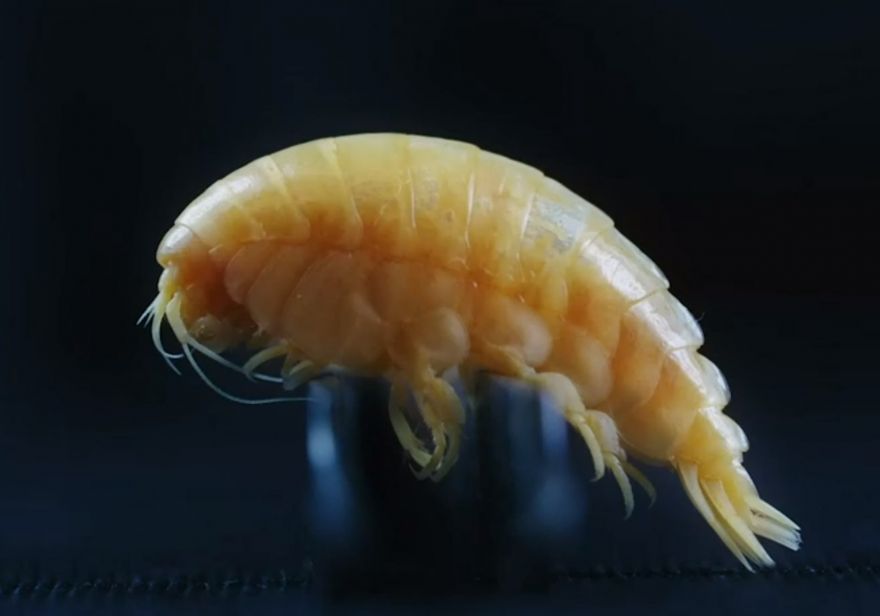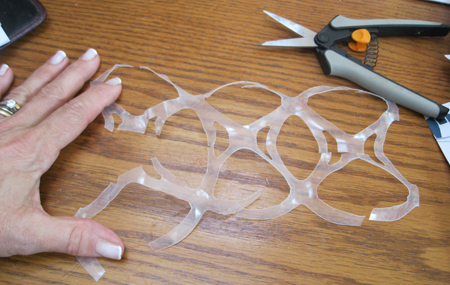 Throughout our time as humans living on the Earth, we have only discovered about 5% of the ocean. This leaves 95% of the ocean unexplored, as we are finding new species everyday. Most recently a species unearthed was named Eurythenes Plasticus…… sound familiar?
Throughout our time as humans living on the Earth, we have only discovered about 5% of the ocean. This leaves 95% of the ocean unexplored, as we are finding new species everyday. Most recently a species unearthed was named Eurythenes Plasticus…… sound familiar?
 Eurythenes Plasticus is a new species of arthropod. It is a two inch shrimp-like animal found in the deepest trench on Earth- The Mariana Trench. The Mariana Trench reaches depths up to 36,000 ft as this new arthropod was found at a staggering 20,000 ft- This is crazy deep! Think of it this way: Mount Everest is the tallest mountain in the world reaching heights of 29,028 ft and the Mariana Trench is 36,000 ft!
Eurythenes Plasticus is a new species of arthropod. It is a two inch shrimp-like animal found in the deepest trench on Earth- The Mariana Trench. The Mariana Trench reaches depths up to 36,000 ft as this new arthropod was found at a staggering 20,000 ft- This is crazy deep! Think of it this way: Mount Everest is the tallest mountain in the world reaching heights of 29,028 ft and the Mariana Trench is 36,000 ft!
Now, this discovery is cool and all, but why is this creature named after plastic? Sadly enough, this arthropod was named after plastic was found inside of its guts. Specifically, this plastic is called polyethylene-terephthalate. Polyethylene-terephthalate is a plastic commonly found in clothing, plastic bottles, and plastic food packaging.
The fact that plastic was found in a species 20,000ft deep in the ocean should be extremely alarming to us. In an article in the Earther, Alan Jamieson, the head of research that helped discover this species states, “We decided on the name Eurythenes plasticus as we wanted to highlight the fact that we need to take immediate action to stop the deluge of plastic waste into our oceans.”
If it hasn’t been apparent to you, let us just reiterate: plastic is taking over the world. It’s found everywhere, even 20,000 ft down in the Mariana Trench. If we don’t stop this spread of plastic, it will truly take over everything.
 While turtles are also known to be killed from ingesting plastics, they are widely affected by fishing netting and plastic soda rings. These pollutants become wrapped around the turtles neck and shell making it tough to breath and move around. A way of helping this issue is to make sure to cut your plastic soda rings before you throw it away. While you may be throwing it in a trash bin there is still a possibility of it ending up back in the ocean. Cutting soda rings can aid with other marine life as well.
While turtles are also known to be killed from ingesting plastics, they are widely affected by fishing netting and plastic soda rings. These pollutants become wrapped around the turtles neck and shell making it tough to breath and move around. A way of helping this issue is to make sure to cut your plastic soda rings before you throw it away. While you may be throwing it in a trash bin there is still a possibility of it ending up back in the ocean. Cutting soda rings can aid with other marine life as well.